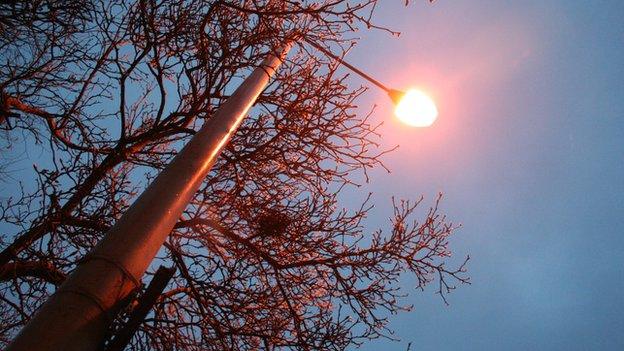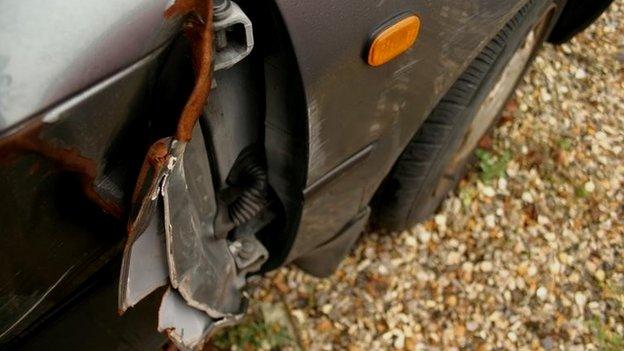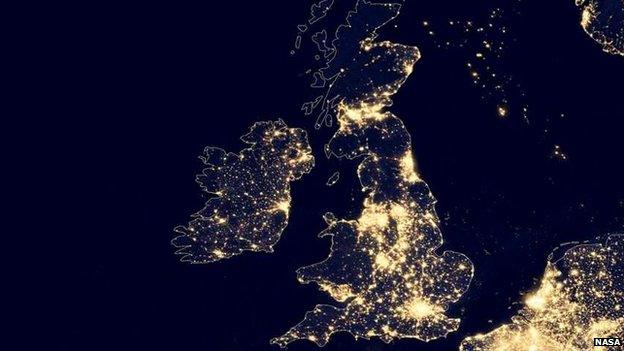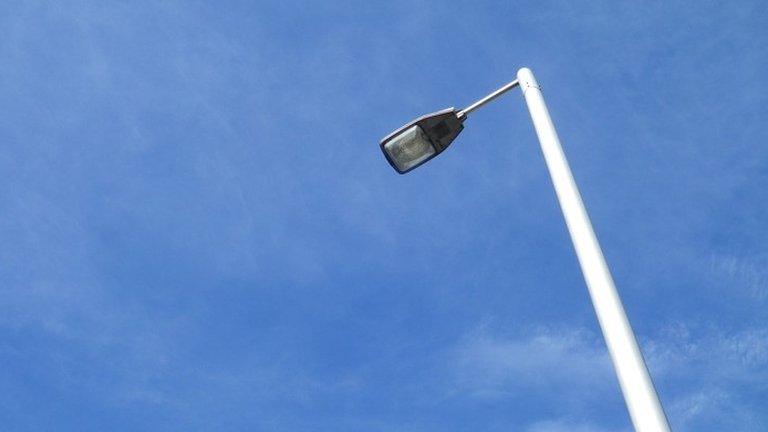Less lighting has no impact on crime or collisions, says report
- Published

Reduced street lighting at night does not lead to an increase in crime or car crashes, a report suggests.
Researchers analysed 14 years of data from 62 councils in England and Wales which had tried strategies such as permanently switching off lights or dimming them.
They said the findings could help save money and reduce carbon emissions.
The AA said the results were "extremely surprising" and differed from their own analysis of inquest findings.
The Local Government Association (LGA) said reducing street lighting does not happen everywhere but the research appeared to support some councils' decision "to save taxpayers' money and improve the environment without compromising public safety".
'No evidence'
The study, led by the London School of Hygiene & Tropical Medicine in partnership with University College London and published in the Journal of Epidemiology and Community Health, looked at councils which had implemented a range of schemes.

The research found no evidence of a link between reduced street lighting and night-time collisions
These included switching lights off permanently, reducing the number of hours that lamps are switched on at night, dimming lights, and replacing traditional lamps with energy-efficient LED lamps.
To assess crime, they looked at data from 2010 to 2013 to analyse how many crimes took place in different areas and the types of street lighting used there.
They focused on offences more likely to occur at night, including burglary, theft of or from a vehicle, robbery, violence and sexual assault.
Overall, there was no evidence of an association between reduced lighting and increased crime.
They also looked at all roads in participating authorities, examining what type of street lighting was used and the number of traffic collisions that happened at night relative to the day during 2000 to 2013.
They found no evidence of a link between reduced street lighting and night-time collisions.
'Little chance'
Lead investigator Dr Phil Edwards said: "An estimated £300m is spent every year on street lights in the UK.
"At a time when local authorities need to make spending cuts, our findings show that by carefully assessing risks, street lighting can be reduced without an increase in car crashes and crime."
Co-author Prof Shane Johnson said while the findings were "very encouraging", any changes to lighting "should be managed carefully".

AA president Edmund King said the motoring group's analysis of inquest findings uncovered six road deaths from 2009 to 2013 where coroners said the switching off of street lights had been a contributory factor.
"Police crash investigators said the drivers had little or no chance of avoiding the collisions," he said.
He said the AA advised its members to drive using their full beams on roads where street lights have been switched off, except where they might dazzle other road users.
Cllr Peter Box, environment spokesman for the LGA, which represents more than 400 local authorities, said "careful consideration" was given to safety when reducing street lighting.
"With local government funding having seen substantial cuts, reducing or dimming streetlights can free up vital cash to protect under-pressure services such as child protection, adult social care, collecting bins and filling potholes," he added.
Research published by the Labour Party in November suggested street lights were being switched off or dimmed in three-quarters of England's council areas.
- Published19 March 2015

- Published5 February 2015
